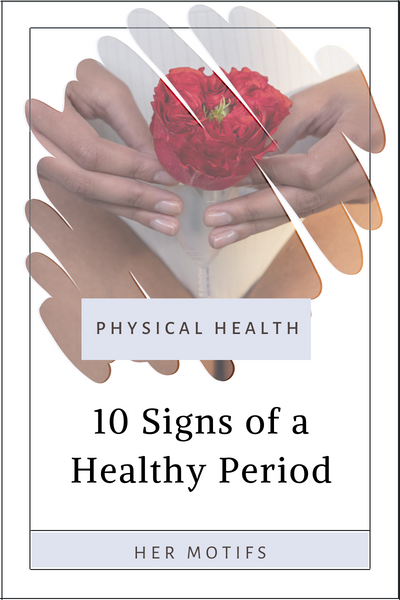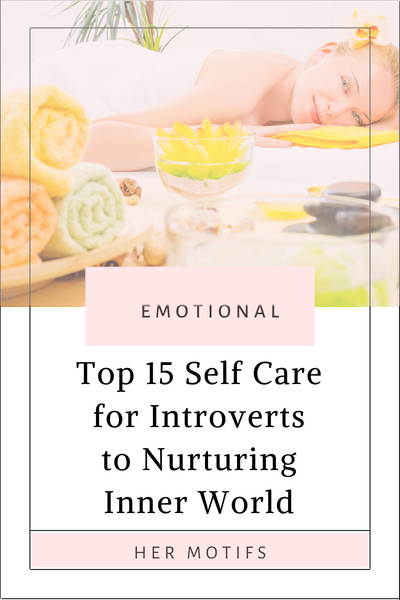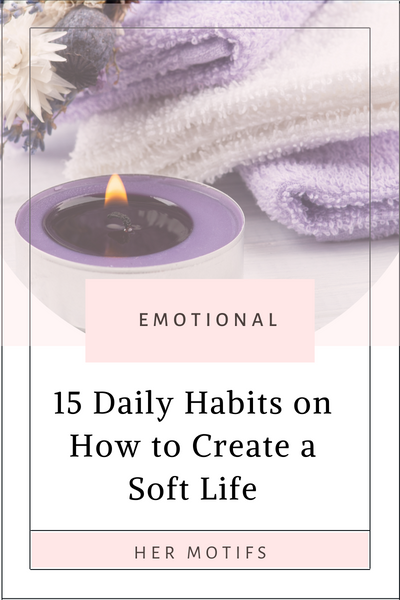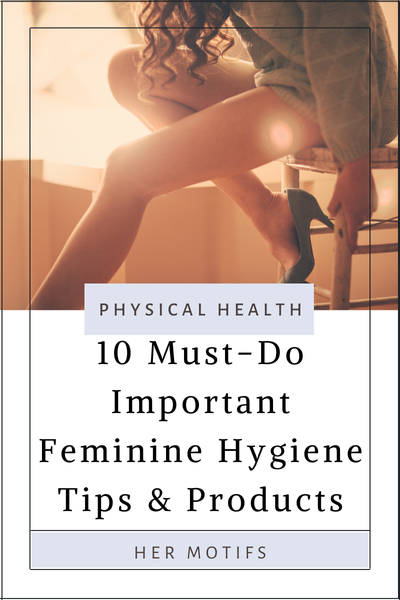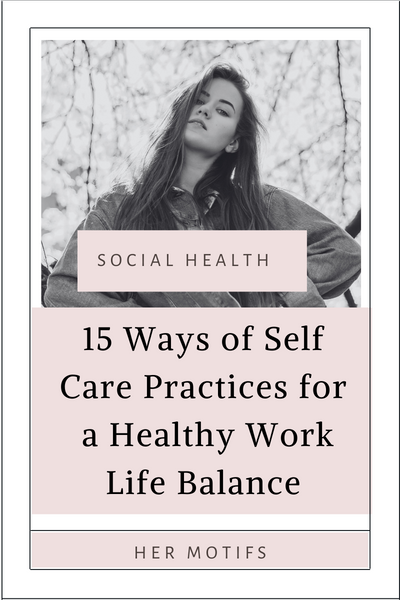10 Ways on How to Sleep Better
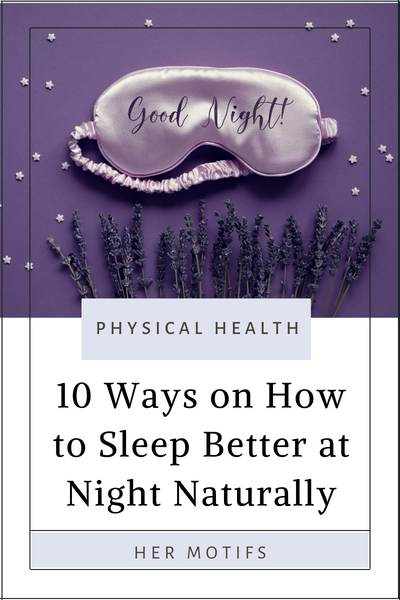 How to Sleep Better naturally refers to improving the quality and duration of sleep without relying on medication or artificial aids.
How to Sleep Better naturally refers to improving the quality and duration of sleep without relying on medication or artificial aids.
It involves adopting healthy lifestyle habits, creating a conducive sleep environment, and implementing relaxation techniques to promote restful and rejuvenating sleep.
By addressing factors such as sleep schedule, bedtime routines, stress management, and sleep environment. Individuals can enhance their sleep naturally, leading to increased energy, improved mood, and better overall health and well-being.
The goal is to establish a sustainable and healthy sleep pattern that supports optimal rest and rejuvenation, allowing individuals to wake up feeling refreshed and ready to tackle the day.
From creating a tranquil sleep environment to incorporating relaxation techniques and mindful habits, these strategies are designed to help you drift off to dreamland effortlessly, awaken refreshed, and embark on your day with renewed vigor. Whether you’re grappling with insomnia or simply aiming to enhance the quality of your sleep, these tips will guide you toward a more peaceful and restorative night’s rest, naturally. So, let’s journey together into the realm of better sleep and unlock the potential for a healthier, more energized you. In this comprehensive guide, we will explore ten natural and effective ways to improve your sleep quality.
.
Table of Contents
Best Night Routine Tools
There are many ways to create a peaceful night, but the most important part is creating a space, mindset, routine that is calming for you. Below are some of best tools
 Daily Goals Journal
Daily Goals Journal
The book has over 100 Lists to Inspire and Motivate Your Growth and help you progress your goals
- Undated Weekly and Monthly Productivity Planner
- A5 Size Refillable To Beat Procrastination
- Easy to Organize different types of goals and milestones or brain dumb activities
.
 Self Care Gift Basket
Self Care Gift Basket
Designed to help you achieve and maintain salon-quality nails at home, by shaping, filing, and buffing for flawless nails wherever you go
- Nail Drill Kit
- Cordless Electric Nail File
- 10 Attachments and LED Light
- Electric Manicure Set with Adjustable Speed
- E-File for Manicure and Pedicure, with Storage Case
.
 Smart Alarm Clock
Smart Alarm Clock
High-quality nature sounds and white noise with custom Sunrise Alarm Clock that supports healthy cortisol levels
- Smart Color Library and Bedside Reading & Night Light
- Control with soft-touch buttons or phone
- Relax with a soft-glow reading light without the eye-straining blue hues.

.
 Tea Assortment
Tea Assortment
Taylors of Harrogate Assorted Specialty Teas Box , 48 count
- Great for vegan, vegetarian, keto
- Flavors included: English Breakfast, Decaffeinated Breakfast, Assam, Earl Grey, Lemon & Orange, Green Tea with Jasmine, Organic Peppermint, Organic Chamomile.
.
 Plush Soft Long Robe
Plush Soft Long Robe
The most luxurious, softest, plush, comfortable robes ever
- 100% Polyester, tie closure, machine wash
- Perfect for sensitive for all skin conditions
- Super soft, plush, shawl collar fleece bathrobe
- Perfect for at home spa day, lounging and self care days
.
1. Establish a Consistent Sleep Schedule
Go to bed and wake up at the same time every day, even on weekends. This helps regulate your body’s internal clock and promotes a more consistent sleep pattern. Develop a routine that helps signal your body that it’s time to wind down and prepare for sleep.
Establishing a consistent sleep schedule is a crucial step in improving your sleep habits. This means going to bed and waking up at the same time every day, even on weekends. Three examples of how to establish a consistent sleep schedule:
- Set a Bedtime Routine: Establish a relaxing routine that signals to your body that it’s time to wind down and prepare for sleep. This can include activities like taking a warm bath, reading a book, or practicing relaxation techniques such as deep breathing or meditation.
- Avoid Irregular Sleep Patterns: Try to avoid frequent changes in your sleep schedule, such as staying up late on weekends or taking naps at inconsistent times. While it may be tempting to catch up on sleep or adjust your schedule occasionally, maintaining a consistent sleep pattern helps regulate your body’s internal clock and promotes better overall sleep quality.
By establishing a consistent sleep schedule, your body becomes accustomed to a regular sleep pattern, making it easier to fall asleep and wake up naturally.
.
2. Create a Relaxing Bedtime Routine
There is nothing better that creating a winding down process, it truly helps when to the quality of sleep. Creating a relaxing bedtime routine is an effective way to improve your sleeping habits. Below are some examples of how to create a calming routine before bed:
- Disconnect from Electronic Devices: Avoid using electronic devices, such as smartphones, tablets, or laptops, at least an hour before bedtime. The blue light emitted by these devices can suppress the production of melatonin, making it harder to fall asleep.
- Take a Warm Bath or Shower: A warm bath or shower before bed can help relax your body and prepare it for sleep. The warm water promotes muscle relaxation and can help wash away the stress of the day. Consider adding a few drops of calming essential oils, such as lavender or chamomile, to enhance the relaxation effect.
- Practice Relaxation Techniques: Incorporate relaxation techniques into your bedtime routine to calm your mind and promote better sleep. This can include practices like progressive muscle relaxation, guided imagery, or gentle stretching exercises.
By creating a relaxing bedtime routine, you can signal to your body and mind that it’s time to wind down and prepare for restful sleep. Consistently engaging in calming activities before bed helps reduce stress and anxiety, promotes relaxation, and sets the stage for a peaceful and rejuvenating night’s sleep.
.
3. Create a Comfortable Sleep Environment
Make sure your bedroom is conducive to sleep. Keep the room dark, quiet, and at a comfortable temperature. Use comfortable bedding, pillows, and consider investing in a supportive mattress if needed.
Creating a comfortable sleep environment is essential for promoting better sleeping habits. Some sleep-friendly environment examples:
- Optimize Your Bedroom: Make sure your bedroom is conducive to sleep. Keep the room cool, dark, and quiet. Use curtains or blinds to block out any external light, and consider using earplugs or a white noise machine to mask any disruptive sounds.
- Reduce Electronic Devices: Minimize the use of electronic devices, such as smartphones, tablets, and televisions, before bed. The blue light emitted by these devices can interfere with the production of melatonin, a hormone that regulates sleep.
- Establish a Relaxing Atmosphere: Incorporate relaxation techniques to create a soothing atmosphere before bedtime. Consider using aromatherapy with calming scents like lavender or chamomile, playing soft music, or practicing gentle stretching or yoga.
Creating a comfortable sleep environment, you can enhance your sleep quality and promote better sleeping habits. A conducive sleep environment helps reduce distractions, supports relaxation, and creates a peaceful atmosphere that encourages restful sleep.
4. Limit Exposure to Blue Light
Blue light can have various effects on the eyes, particularly when there is excessive or prolonged exposure. Limiting exposure to blue light is an important factor in improving your sleeping habits. Blue light, emitted by electronic devices and energy-efficient lighting, can disrupt your body’s natural sleep-wake cycle.
- Avoid Electronic Devices Before Bed: Minimize your use of electronic devices, such as smartphones, tablets, and computers, in the hours leading up to bedtime. The blue light emitted by these devices can interfere with the production of melatonin, the hormone that regulates sleep.
- Use Blue Light Filters or Apps: If you need to use electronic devices in the evening, consider using blue light filters or apps that reduce the amount of blue light emitted. These filters can be installed on smartphones, tablets, and computers and adjust the display to emit warmer, less stimulating light. .
- Opt for Warm Lighting: Choose warm, dim lighting for your evening activities and bedroom. Replace bright, fluorescent bulbs with warm-toned or amber bulbs to create a relaxing and sleep-friendly atmosphere. Use table lamps or bedside reading lights with lower wattage to minimize the exposure to bright light in the evening.
Limiting your exposure to blue light, especially in the evening, you can support your body’s natural sleep rhythm and improve your sleep quality. Minimizing blue light exposure helps signal to your brain that it’s time to wind down and promotes the production of melatonin, facilitating a smoother transition into a restful sleep
.
5. Avoid Stimulants
Limit your consumption of caffeine, nicotine, and alcohol, especially in the evening. These substances can disrupt your sleep patterns and make it harder to fall asleep or stay asleep throughout the night.
Avoiding stimulants is an important aspect of developing better sleeping habits. Below are three common stimulants to avoid for improved sleep:
- Caffeine: Caffeine is a well-known stimulant that can interfere with sleep. It is commonly found in coffee, tea, energy drinks, soda, and chocolate. Avoid consuming caffeinated beverages or foods, especially in the late afternoon and evening, as it can disrupt your ability to fall asleep and maintain deep sleep.
- Nicotine: Nicotine is another stimulant that can negatively impact sleep. Smoking or using tobacco products close to bedtime can lead to difficulty falling asleep and can cause disruptions in sleep throughout the night.
- Alcohol: While alcohol is often associated with inducing sleepiness, it can actually disrupt the quality of your sleep. While it may initially make you feel drowsy, alcohol can interfere with the natural sleep cycles, leading to more frequent awakenings and less restorative sleep. It’s best to limit or avoid alcohol consumption, particularly close to bedtime.
Avoiding these stimulants, you can support better sleep quality and overall sleep hygiene. Opting for decaffeinated beverages, exploring nicotine replacement therapy options, and moderating alcohol consumption can contribute to a more restful and rejuvenating sleep experience.
.
6. Exercise Regularly
Engage in regular physical activity during the day, as it promotes better sleep. However, try to avoid exercising too close to bedtime, as it may increase alertness and make it harder to fall asleep. Exercise regularly is an effective way to improve your sleeping habits and promote better sleep. Below are some benefits of exercising regularly
- Promotes Deeper Sleep: Engaging in regular physical activity, such as aerobic exercises or strength training, can help you achieve deeper and more restorative sleep.
- Reduces Sleep Disorders: Regular exercise can reduce the risk of developing sleep disorders, such as insomnia and sleep apnea. It helps regulate your body’s internal clock and improves sleep quality, making it easier to fall asleep and stay asleep throughout the night.
- Enhances Mood and Reduces Stress: Physical activity has a positive impact on mental well-being. Regular exercise releases endorphins, which are natural mood-boosting chemicals in the brain. It also helps reduce stress and anxiety, which are common contributors to sleep disturbances.
Incorporating regular exercise into your lifestyle, you can reap the benefits of improved sleep quality, reduced sleep disorders, and enhanced overall well-being. Remember to consult with a healthcare professional before starting any new exercise program, especially if you have any underlying health conditions.
.
7. Tools that with Sleeping Better
Not everyone is a night owl, some of us need aids or tools that will help us sleep. This may be reading a book or listening to music. When it comes to improving your sleeping habits, there are various tools and aids available that can help create a more comfortable and conducive sleep environment. Examples of tools commonly used for better sleep:
- Mattress Toppers: A mattress topper is a thick layer of cushioning material that is placed on top of your mattress. It can provide additional support, comfort, and pressure relief, enhancing the quality of your sleep. Mattress toppers come in various materials, such as memory foam, latex, or down alternative, allowing you to choose the one that suits your preferences and sleep needs.
- White Noise Machines: White noise machines produce a consistent and soothing sound that helps mask disruptive noises and promotes relaxation. They create a consistent background noise that can drown out sounds like traffic, snoring, or noisy neighbors, allowing you to fall asleep and stay asleep more easily.
- Relieving Dryness: Dry air can cause dry skin, irritated nasal passages, and dry throat, which can disrupt your sleep and make you feel uncomfortable. Humidifiers add moisture to the air, helping to alleviate these symptoms and create a more comfortable sleep environment.
It’s important to note that while these tools can be helpful, they are not a substitute for addressing underlying sleep issues or practicing good sleep hygiene habits. Consulting with a healthcare professional or sleep specialist is advisable if you consistently experience sleep problems.
.
8. Avoid Heavy Meals
Avoid eating large meals or consuming heavy, spicy, or acidic foods close to bedtime. Additionally, limit your intake of fluids to prevent disruptive trips to the bathroom during the night. When it comes to better sleeping habits, avoiding heavy meals before bedtime is essential for promoting quality sleep. Some tips include:
- Improved Digestion: Consuming heavy meals close to bedtime can lead to indigestion and discomfort, making it difficult for your body to properly digest food while you sleep. This can result in symptoms like heartburn, bloating, and disrupted sleep.
- Enhanced Sleep Quality: Eating a heavy meal before bedtime can trigger your body’s digestive system to work harder, which can increase your metabolic rate and body temperature. This metabolic activity can interfere with the natural sleep process, making it harder to fall asleep and reducing the overall quality of your sleep.
- Reduced Acid Reflux: Heavy meals, especially those that are rich in acidic or spicy foods, can exacerbate acid reflux symptoms during the night. Acid reflux occurs when stomach acid flows back into the esophagus, causing discomfort and irritation. This condition can disrupt your sleep, leading to interrupted sleep cycles and poor sleep quality.
Instead of heavy meals before bedtime, consider having a light and balanced dinner that includes lean proteins, whole grains, fruits, and vegetables. It’s also advisable to eat your dinner at least two to three hours before bedtime to allow for proper digestion.
Everyone’s digestive system functions differently, so it’s essential to pay attention to your own body’s reactions and find the eating patterns that work best for you to ensure a restful and uninterrupted night’s sleep.
.
9. Manage Stress
Find healthy ways to manage and reduce stress, as it can significantly impact your sleep quality. Engage in relaxation techniques such as deep breathing exercises, meditation, or journaling to help calm your mind before bed.
Managing stress is crucial for promoting better sleeping habits. When you effectively manage stress, you can experience improved sleep quality and overall well-being. Some
- Relaxation and Calming Techniques: Engaging in relaxation techniques before bedtime can help calm the mind and body, preparing you for a restful sleep. Practices such as deep breathing exercises, meditation, progressive muscle relaxation, or listening to soothing music can help reduce stress levels, ease tension, and promote relaxation.
- Establishing a Bedtime Routine: Having a consistent bedtime routine can signal to your body that it’s time to unwind and prepare for sleep. Engaging in activities that help you relax and wind down, such as reading a book, taking a warm bath, or practicing gentle stretching, can help alleviate stress and promote a sense of calmness.
- Time Management and Prioritization: Poor time management and overwhelming workloads can contribute to increased stress levels, making it difficult to unwind and sleep well. By practicing effective time management techniques, such as setting priorities, breaking tasks into manageable chunks, and delegating when necessary, you can reduce stress and create a more balanced lifestyle.
It’s important to note that stress management techniques are highly individualized, and what works for one person may not work for another. It’s essential to explore different strategies and find the ones that resonate with you personally.
Managing stress effectively, you can create a more peaceful and conducive environment for sleep. Incorporating relaxation techniques, establishing a bedtime routine, and practicing time management can help reduce stress levels, promote relaxation, and improve the quality of your sleep.
.
10. Create a Restful Mindset
Try to cultivate a positive and relaxed mindset about sleep. Avoid associating your bed with stressful or stimulating activities. Creating a restful mindset is essential for promoting better sleeping habits. By adopting practices that calm the mind and promote relaxation, you can improve the quality of your sleep. Below are some tips:
- Mindfulness and Meditation: Practicing mindfulness and meditation can help quiet the mind and promote a sense of inner calmness. By focusing your attention on the present moment and observing your thoughts without judgment, you can reduce mental chatter and anxiety that may disrupt sleep
- Journaling and Gratitude: Writing in a journal before bedtime can help release any racing thoughts or worries that may keep you awake. You can jot down your thoughts, feelings, or concerns, allowing your mind to unload and find closure.
- Visualization and Positive Affirmations: Engaging in visualization exercises or repeating positive affirmations can help cultivate a restful mindset. You can imagine yourself in a serene and peaceful setting, visualizing the sensations of relaxation and tranquility.
Creating a restful mindset through mindfulness, journaling, gratitude, visualization, and positive affirmations, you can set the stage for a peaceful and rejuvenating night’s sleep. These practices help shift your focus away from stress and worries, promoting relaxation and improving the quality of your sleep.
.
Conclusion
Remember, improving your sleep habits takes time and consistency. Experiment with these tips and find what works best for you. By prioritizing sleep and implementing healthy habits, you can enjoy better quality sleep and wake up feeling refreshed and energized each morning.
Everyone’s sleep needs and preferences are unique, so it’s important to experiment and find the strategies that work best for you. Incorporating these natural sleep-enhancing practices into your nightly routine, you can establish healthy sleep habits, improve sleep quality, and wake up feeling refreshed and revitalized.
Prioritize your sleep, and you’ll reap the numerous benefits of a well-rested mind and body in your daily life
.
- 100 Valentine Lovers Questions - February 24, 2025
- 2025 New Year Growth Quotes - February 24, 2025
- 2025 Inspiring Self Love Quotes - February 24, 2025

